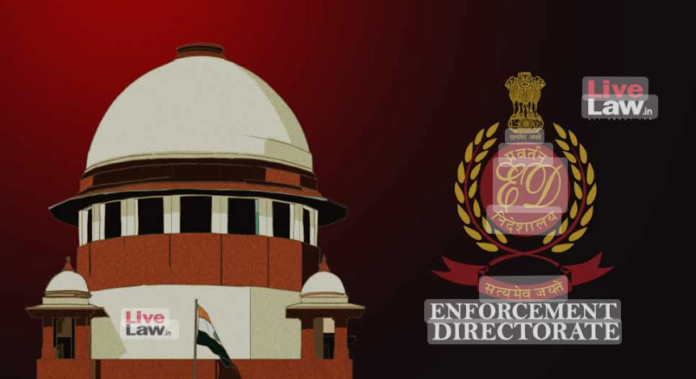The Supreme Court’s remark on the ED’s power to summon anyone has raised questions about the autonomy and accountability of the central agencies and their impact on the federal structure of the country.
The Enforcement Directorate (ED) is a central agency that investigates economic offences and money laundering cases. It derives its powers from the Prevention of Money Laundering Act (PMLA), 2002, which empowers it to summon any person for investigation. The ED can also attach and confiscate the properties of the accused and initiate prosecution against them.
Recently, the ED has been in the spotlight for issuing summons to several prominent political leaders, including the Chief Minister of Tamil Nadu, K5 DM, in connection with an alleged sand mining scam. The ED had filed a petition in the Supreme Court, challenging the order of the Madras High Court, which had stayed the summons issued to K5 DM. The Supreme Court, while hearing the petition, made a big comment that the ED can summon anyone and it has to honour the summons.
This remark has sparked a debate on the role and functioning of the ED and other central agencies, such as the Central Bureau of Investigation (CBI), the Income Tax Department, and the National Investigation Agency (NIA), which often face allegations of being misused by the ruling party at the Centre to target its political opponents and interfere in the affairs of the states. The critics of the ED argue that the agency is acting as a tool of political vendetta and harassment and that its summons are arbitrary, vague, and disproportionate. They also contend that the ED’s actions violate the principles of federalism and cooperative federalism, which are the pillars of the Indian Constitution.
On the other hand, the supporters of the ED maintain that the agency is performing its duty by the law and that its summons are based on credible evidence and due process. They also assert that the ED’s actions are aimed at curbing corruption and black money and that its summons are not a violation of federalism, but a manifestation of the rule of law, which is the supreme value of the Constitution.
The Supreme Court’s remark on the ED’s power to summon anyone has raised questions about the autonomy and accountability of the central agencies and their impact on the federal structure of the country. It is important that the central agencies act fairly and impartially, without any political bias or interference, and respect the rights and dignity of the persons summoned. It is also important that the persons summoned cooperate with the agencies and comply with the law, without any fear or favour. The balance between the central agencies and the states, and between the rule of law and federalism, is essential for the preservation of the democratic and constitutional ethos of the country.


